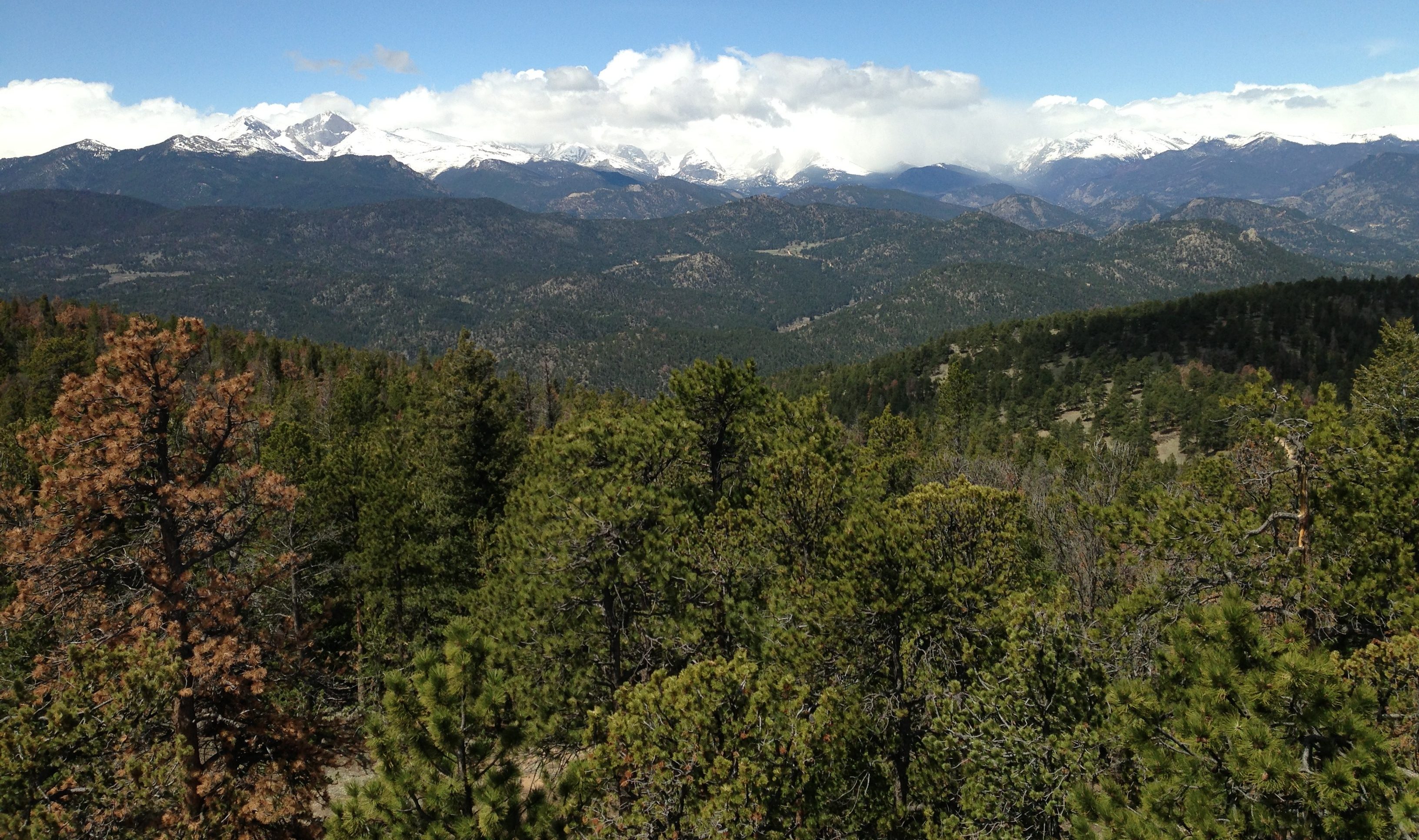When fueling your campfire, you usually use dry, dead timber over fresh wood from a living tree. By extension, many people think that forests killed by bark beetles will burn more readily. However, the reality is a little more complicated. Most research shows that beetle-killed forests do not burn more often than healthy forests. However, once set on fire, there are some differences between healthy and beetle-killed forest. Led by University of Wyoming’s Ph.D. student Alexandra Howell, we recently discovered that beetle-killed trees burn differently compared to healthy trees. This difference could play an important role in countering climate change.
Little Beetle, Big Impact
Bark beetles are a group of insects that feed on the sugary tissue in the bark of trees. They are a natural part of forested ecosystems and typically prefer old and weakened trees. When a forest has reached a certain age, bark beetle populations can explode rapidly due to an overabundance of food. These so-called “epidemics” lead to widespread mortality of trees. Beginning in the late 1990s and into the 2010s, large areas of the Western United States and Canadian forests were killed by such a bark beetle epidemic. The implications of this epidemic are still being researched today.
If you have followed the news over the recent years, you are aware that wildfires appear to become more common and severe. This is largely a result of hotter and drier climates rather than beetles. However, due to the extent of the aforementioned bark beetle epidemic, wildfires today burn frequently in areas that were previously affected by bark beetles. This begged the question: do beetle-killed trees burn differently compared to healthy trees?
Ashes to Ashes?
To address this question, we sampled some lodgepole pine timber at our research site in southeastern Wyoming (AmeriFlux Site Info). Samples were analyzed in the Belmont Energy Research Group (BERG) at the University of Wyoming. Our results showed that the charred remains of beetle-killed timber contain a higher proportion of so-called biochar. Biochar is a type of carbon that naturally decays very slowly. In fact, carbon trapped in the form of biochar does not re-enter the atmosphere for thousands of years. Because carbon is an important greenhouse gas, removing carbon from the atmosphere and storing it long-term in the soil has important implications for climate change.
Of course, we do not suggest the burning of all beetle-killed forests because burning any wood releases a lot of carbon back into the atmosphere. But if burning beetle-killed wood releases less carbon than burning healthy wood, we have to account for this in our global carbon calculations. Our next step is to sample timber from other fires in the region and from other conifer species. There is much yet to learn!







Shubhangi
Clear and comprehensible article. I’m a biology major and I learned a lot about bark beetles, biochar and how those beetles are somewhat contributing positively towards the betterment of our climate. Thank you for sharing!